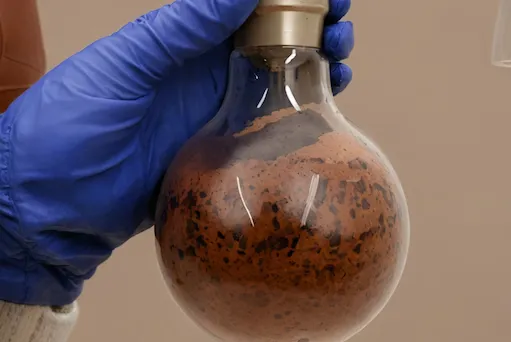A multidisciplinary consortium of researchers at Aalto University and Åbo Akademi in Finland, and at Technical University Munich in Germany, are developing a flexible biorefinery concept to exploit the unique synergism of lignin-carbohydrate complexes (LCCs), which are naturally found in wood, to produce fully bio-based antioxidants, effective surfactants and polymer additives. LCCs are indispensable components of the wood cell wall, providing wood its rigidity and structure. In classical pulping processes, LCCs are disintegrated to isolate cellulose, hemicellulose and lignin. Within the consortium project “AI-4-LCC: Exploiting Lignin-Carbohydrate Complex through Artificial Intelligence” funded by the Research Council of Finland, the teams of late Professor of Practice Mikhail Balakshin (†2022, Aalto University), Prof. Patrick Rinke (Aalto University, Technical University of Munich) and Prof. Chunlin Xu (Åbo Akademi) have developed a process to produce LCCs with tailored properties and high yield.
The new process is based on a modified hydrothermal treatment of wood followed by solvent extraction of the resulting solids, named AquaSolv Omni (AqSO) by Balakshin. The properties of the LCCs can be adjusted precisely by tuning the process conditions. Researchers from Rinke’s group employed Bayesian Optimization to iteratively collect data points of interest and evaluate the impact of the process conditions (P-factor, temperature, and liquid-to-solid ratio) on yield and carbohydrate content. Incorporation of Pareto front analysis allowed the team to maximize both yield and carbohydrate content. To evaluate LCC’s potential for high-value applications, the antioxidant potential, surface tension and glass transition temperature were measured in close collaboration with experts from Xu’s group of biomass chemists. The joint effort was recently published in the prestigious journal ChemSusChem: Enhancing Lignin-Carbohydrate Complexes Production and Properties With Machine Learning.
Doctoral candidate Daryna Diment explains: “High carbohydrate content of LCCs was found beneficial for reducing the glass transition temperature and surface tension of aqueous solutions, implying its potential use in thermoplastic formulations and as bio-based surfactants.LCCs produced in severe processing conditions (high temperature and extensive time) demonstrated a remarkable antioxidant activity.”
Overall, the developed idea represents an unparalleled advantage over traditional biorefineries for LCC isolation because it involves only water, temperature, and acetone extraction. On top of that, Bayesian Optimization provided flexibility to produce LCCs with targeted properties in high yield. This work demonstrates the potential of LCCs as a novel biorefinery product and showcases how machine learning can be used to accelerate the development of new technologies to valorize local and natural resources.
Publication
Enhancing Lignin-Carbohydrate Complexes Production and Properties with Machine Learning in ChemSusChem by Diment et al. https://doi.org/10.1002/cssc.202401711
More information
Prof. Patrick Rinke's Research group for AI-based Materials Science
Munich Data Science Institute's Atomistic Modeling Center
Press contact
Original article: https://www.aalto.fi/en/news/a-flexible-biorefinery-using-machine-learning
